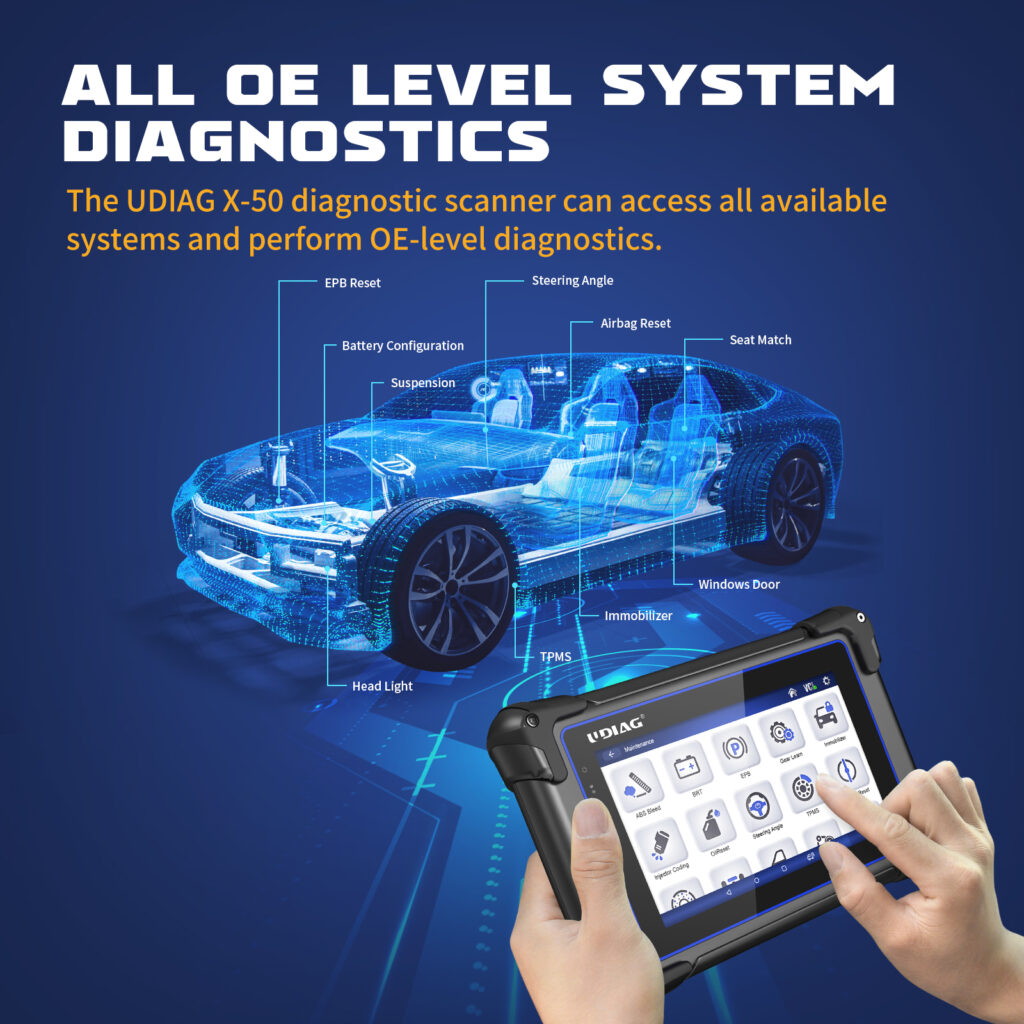The Crucial Role of Diagnostic Trouble Codes in Auto Repair.
2023-11-02 by UDIAG
In the intricate world of auto repair, the unsung heroes are the Diagnostic Trouble Codes (DTCs). These seemingly cryptic combinations of numbers and letters hold the key to unlocking the secrets behind your car’s malfunctions. From deciphering the problem behind the flickering check engine light to pinpointing the exact issue under the hood, DTCs are the guiding stars for mechanics and car owners alike.
Have you ever been baffled by the enigmatic codes flashed on the mechanic’s scanner or puzzled by the illuminated symbols on your car’s dashboard? Fear not! This article delves into the world of DTCs, unraveling their significance, how they function, and why they are vital in the realm of auto repairs.
I. Understanding Diagnostic Trouble Codes
Diagnostic Trouble Codes, commonly referred to as DTCs, are codes generated by a vehicle’s onboard computer systems. These codes serve as warning signs when the car’s computer detects a problem within the vehicle. They range from generic codes applicable to all vehicle models to manufacturer-specific codes unique to certain brands.
Deciphering the Code: How DTCs Work
When your car encounters a glitch or malfunction, the onboard diagnostic system records specific codes that indicate the issue. These codes are accessed using an OBD-II scanner, a handy tool used by mechanics and even some car owners to read the codes.
II. The Crucial Role of Diagnostic Trouble Codes in Auto Repair
Identifying the Issue
DTCs act as the starting point in diagnosing car troubles. They offer a glimpse into what part of the vehicle is malfunctioning, guiding the mechanic in the right direction. These codes help in narrowing down the potential issues, whether it’s an engine misfire, a faulty sensor, or a problem with the emissions system.
Quick Problem-Solving
Armed with DTCs, mechanics can swiftly identify the root cause of the problem, saving time and reducing the need for exhaustive manual checks. It expedites the repair process, making the service more efficient and cost-effective for car owners.
III. Diagnostic Trouble Codes and DIY Auto Repairs
Car enthusiasts or those keen on understanding their vehicle’s issues can utilize DTCs to perform their own basic diagnostic checks. With an OBD-II scanner and access to DTC databases online, enthusiasts can read codes, research potential issues, and take simple measures to address the problem.
Empowering Car Owners
DTCs empower car owners by providing a preliminary understanding of what might be wrong with their vehicle. This knowledge can help in informed conversations with mechanics and prevent being misled or overcharged for unnecessary repairs.
Conclusion
In the realm of auto repairs, Diagnostic Trouble Codes are the guiding compass that leads mechanics and car owners through the maze of car troubles. They provide invaluable insights into what’s ailing the vehicle, ensuring a more efficient and targeted approach to repairs. From empowering car enthusiasts with basic diagnostics to assisting professionals in pinpointing complex issues, DTCs play a pivotal role in the automotive world. So, the next time your car’s check engine light pops on, remember, those mysterious codes might just hold the key to a swift and accurate solution.
FAQs
1. Can DTCs tell me exactly what’s wrong with my car?
DTCs provide a starting point for diagnosis. They point towards the system or component that’s reporting an issue, not the specific problem. Further investigation is needed for a more accurate diagnosis.
2. Can I clear DTCs to turn off the check engine light?
Clearing DTCs might turn off the check engine light temporarily, but it doesn’t fix the underlying issue. It’s advisable to address the problem causing the code to prevent potential long-term damage.
3. Are all DTCs the same across different car makes and models?
Generic DTCs are standardized across all vehicles, while some codes are specific to certain manufacturers, making it essential to use the right code reference for accurate diagnosis.
4. Can I drive with a DTC showing on my dashboard?
It depends on the severity of the issue. Some problems might be minor, while others could cause significant damage. It’s advisable to get the issue diagnosed as soon as possible.
5. How often should I check for DTCs in my car?
It’s a good practice to scan for DTCs periodically, especially if the check engine light comes on or if the vehicle shows any abnormal behavior.




